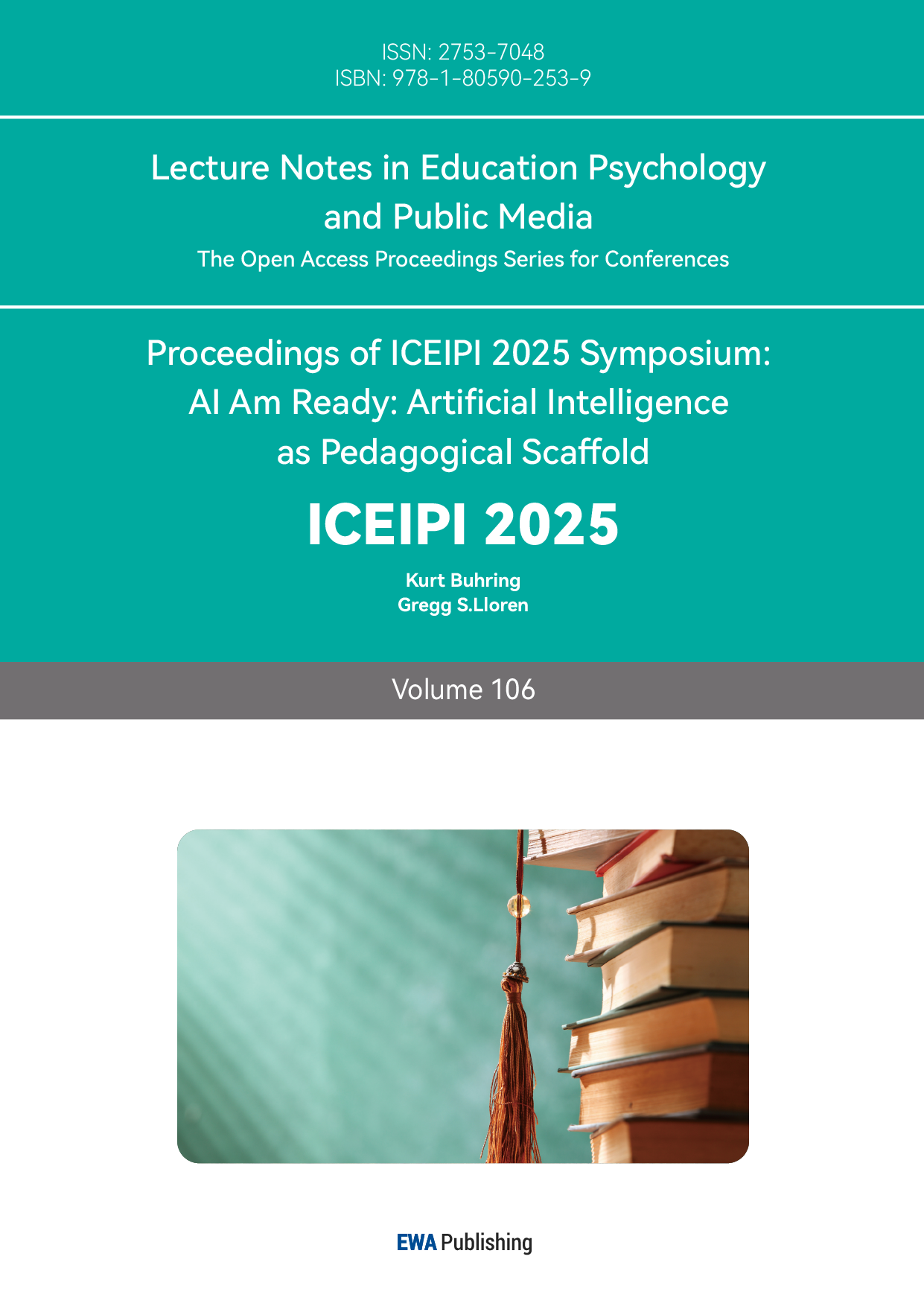References
[1]. Shen, J.L. (2013) Modern drama: Spatial turn and thirdspace. Drama Art, (04), 29–36.
[2]. Wang, H.Y. and Cheng, X. (2024) Operation of ambient small theatre musicals in the third space perspective. Arts Management (Chinese-English Edition), (04), 94–99.
[3]. Zhang, S.H. (2023) Analyzing the popularity of resident theater in Chinese small theaters: A case study of the musical “Apollonia”. Theater Home, (21), 15–17.
[4]. Song, Z.Q. and Liu, Q. (2023) Research on spatial transformation and art production in urban renewal—Taking the Asia Mansion of Shanghai as an example. Arts Management (Chinese-English Edition), (04), 147–155.
[5]. Liu, C.P. (2022) Further improvement of cultural consumption level—Research on the development trend of new performing arts space in Shanghai. Arts Management (Chinese-English Edition), (01), 142–150.
[6]. Xu, X.F. (2024) The experimental path of small theater drama. Tianjin Daily, November 26, 010.
[7]. Zhou, J.Y. (2023) Expanding new space for performing arts to cultivate new engines of consumption: Insights from the transformation of Asia Mansion in Shanghai’s development as a performing arts capital. Scientific Development, (04), 106–112.
[8]. Liu, M.L. (2022) The formation and development of the new ecology of urban performing arts: On the example of Asia Mansion as a new performing space. New Performing Space, (06), 105–115.
[9]. Wu, J.Y. (2022) Sense, space, experience: A study of the body as a medium for constructing meaning in live musical theatre. Master’s thesis, Fujian Normal University.
[10]. Du, X.R. (2023) Model construction of the formation mechanism of art consumption experience. Arts Management (Chinese-English Edition), (01), 60–68.



